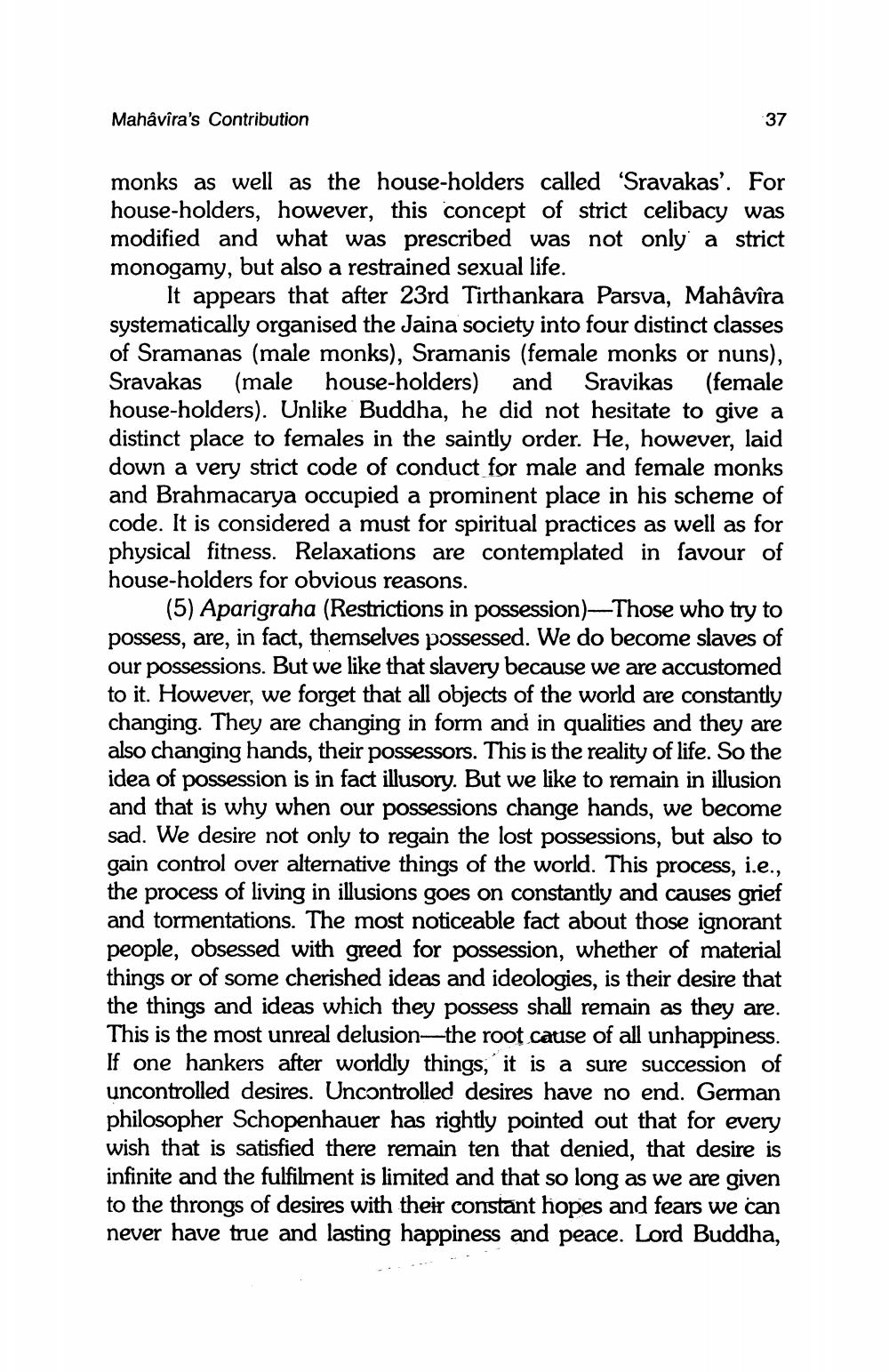________________
Mahâvira's Contribution
37
monks as well as the house-holders called 'Sravakas'. For house-holders, however, this concept of strict celibacy was modified and what was prescribed was not only a strict monogamy, but also a restrained sexual life.
It appears that after 23rd Tirthankara Parsva, Mahâvîra systematically organised the Jaina society into four distinct classes of Sramanas (male monks), Sramanis (female monks or nuns), Sravakas (male house-holders) and Sravikas (female house-holders). Unlike Buddha, he did not hesitate to give a distinct place to females in the saintly order. He, however, laid down a very strict code of conduct for male and female monks and Brahmacarya occupied a prominent place in his scheme of code. It is considered a must for spiritual practices as well as for physical fitness. Relaxations are contemplated in favour of house-holders for obvious reasons.
(5) Aparigraha (Restrictions in possession)-Those who try to possess, are, in fact, themselves possessed. We do become slaves of our possessions. But we like that slavery because we are accustomed to it. However, we forget that all objects of the world are constantly changing. They are changing in form and in qualities and they are also changing hands, their possessors. This is the reality of life. So the idea of possession is in fact illusory. But we like to remain in illusion and that is why when our possessions change hands, we become sad. We desire not only to regain the lost possessions, but also to gain control over alternative things of the world. This process, i.e., the process of living in illusions goes on constantly and causes grief and tormentations. The most noticeable fact about those ignorant people, obsessed with greed for possession, whether of material things or of some cherished ideas and ideologies, is their desire that the things and ideas which they possess shall remain as they are. This is the most unreal delusion-the root cause of all unhappiness. If one hankers after worldly things, it is a sure succession of uncontrolled desires. Uncontrolled desires have no end. German philosopher Schopenhauer has rightly pointed out that for every wish that is satisfied there remain ten that denied, that desire is infinite and the fulfilment is limited and that so long as we are given to the throngs of desires with their constant hopes and fears we can never have true and lasting happiness and peace. Lord Buddha,




